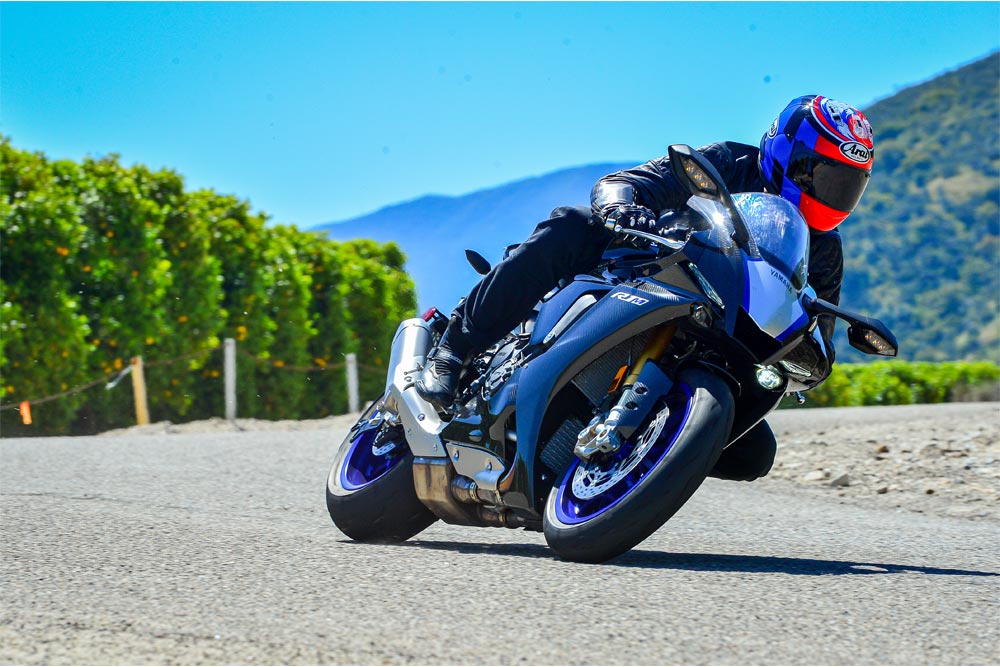Yamaha's YZF-R1 Won't Be Homologated From 2025
Cycle News Staff | February 28, 2024
Yamaha Europe dropped a bombshell last week when it announced the YZF-R1 will not be homologated from 2025, effectively ending the sale of the machine as a street-legal machine.
 The king might be leaving the building. Yamaha won’t be homologating the R1 in Europe for 2025, which might prove to be the end of the iconic model in due course.
The king might be leaving the building. Yamaha won’t be homologating the R1 in Europe for 2025, which might prove to be the end of the iconic model in due course.
The R1 has been Yamaha’s primary superbike since 1998 (interspersed with a couple of years of the 750cc YZF-R7 in the early 2000s) and has gone on to receive cult status across the world. Among just a few of the R1’s world firsts are its stacked gearbox design, now ubiquitous for superbike design, the first crossplane crank superbike engine, and the first superbike to implement a six-axis IMU electronics with slide control.
Yamaha has stated it will continue to sell the R1 as a track-only model in Europe in much the same way as it has done with the R6, a machine that was dropped from the company’s street bike lineup in 2020. Yamaha has gone on to create a huge range of GYTR parts for the R6 to keep it in supersport race production in Europe, and this looks like the path the R1 is set to take.
The R1 is homologated until 2028, however, and last received an update in 2021, but it looks like that will be it as far as development goes. Yamaha’s much-anticipated YZF-R9 next-gen supersport bike, rumored to be set for 2025 production, will thus take top billing as the company’s premier sports motorcycle, although it must be stated that Yamaha USA intends to keep the R1 as a road-legal motorcycle for the foreseeable future.
After speaking to Cycle News, a spokesperson for Yamaha stated, “The decision to not homologate the YZF-R1 to EU5+ emissions is specific to the European market. The currently EU5-compliant YZF-R1 will remain a street-legal model in the U.S. market for the 2025 model year.”
The demise (at least in Europe) of the R1 as a street legal entity shows the shifting priorities of the world’s manufacturers regarding 200 horsepower superbikes for the street. This begs the question, will next-gen supersport eventually become what is now called superbike? With the impending MotoGP capacity cut from 1000cc to 850cc for 2027 and thus the reduction in speed, superbikes will have to follow suit and reduce overall speed. But given the dwindling sales of 1000cc superbikes across the industry for all manufacturers except Ducati, the wheels might already be in motion to axe 1000cc superbikes altogether. We have a feeling this story will run and run for a while yet.CN